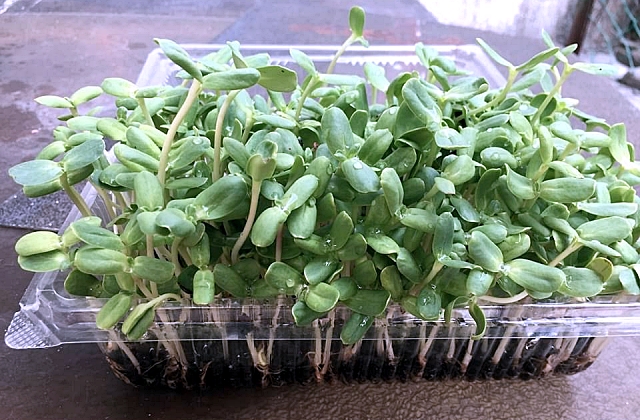Microgreen Farming in Kerala

The idea of growing microgreen crops was conceived in India when the soil and climate conditions there were unsuitable for other traditional crop crops. The microgreen family includes cucumbers, water lilies, melons and peppers among many others. Microgreen beans also belong to this family. The soil and climate conditions there are not suitable for growing other conventional crops. The microgreen family is an ideal crop to be planted in a marginal and small area where conventional growing conditions do not allow. Planting microgreen crops in Kerala is one way of taking benefits of this unique environment and is a unique opportunity to show that traditional methods of agricultural farming are not the only ways available for successful farmers.
The microgreen growing industry has experienced a phenomenal growth in Kerala and other parts of India. The micro green plant is ideal for people who love nature but do not have the time or resources to cultivate traditional crops. Microgreen plants need less water, fertilizer and fertilizers and require almost no maintenance. In a nutritionally rich land, microgreens are easily replenished making it ideal for an environmentally conscious farmer. Traditional farmers of Kerala have embraced the idea of planting microgreens because of these factors.
Plant microgreens as a part of your farm portfolio and earn profits that surpass your competitors’. An ideal crop for an environment conscious farmer microgreen is able to survive even on less than perfect conditions. Microgreen grows well in floodplains, roadside ditches, sandy soils and rocky terrains. It will not grow or thrive in rocky soil that is heavy with clay or highly acidic. In a highly productive agricultural region, microgreen farming in Kerala will contribute a lot towards increasing the yields.
Growing microgreens has a number of advantages. These benefits include reduced fertilizer use, increased crop production and improved crop quality. Another benefit of growing microgreens organically is that they are disease-resistant plants. So, if you are thinking of investing in microgreen farms in Kerala, you can be rest assured that your plants will be disease free.
On average, farmers earn around 25% profit from each unit that they grow. This is made possible by ensuring good growing conditions and appropriate availability of seed. One of the biggest benefits of microgreen farming in Kerala is that it does not involve pesticides or other chemicals. Chemical fertilization increases yield but at the cost of health and safety for the microgreens. Most of the farmers growing microgreens in Kerala employ modern pest control methods without using chemicals. Chemical fertilization can pose risks to the farmers and the microgreen crops and so the choice is to grow without using chemical agents.
In India, there are many initiatives like tribal welfare day and different kinds of awareness programs that promote microgreen growing techniques. Farmers from different regions of India such as Kalikade taluk, Mararikulam, Kovalam and Kozhikode come together to enhance the productivity of their crops. The main aim of these farmers is to produce quality crops that improve the standard of living in the villages. Microgreen farms to help them improve the income levels that they earn from selling the fresh green shoots of the plants. The microgreen farms are also managed on ecological principles, as no chemicals are used to ensure better growth and development of the plants.
There are three kinds of microgreen farming in Kerala, namely paddy field, tea and coffee fields. The paddy field is mainly responsible for ensuring productivity and increase in food production in Kerala. Paddy fields are mainly dependent on rains from time to time. The farmer should know how to identify the right season so that the rains ensure proper flow of water to the fields. In the absence of rains the crops sowed too early will have to be stored, thus damaging their growth and yield.
In the case of tea and coffee plantations, different species of tea plants are grown, namely, Erragrostis and Arabica. These species are crossed to ensure that the plants have large and uniform leaves and flowers. This ensures better pest control as the leaves and flowers of the plant are not affected by many diseases. The third variety of farm in Kerala is the organic farm management. This is mostly set up with the help of a farmer who has an interest in preserving the environment and is passionate about his/her cause.